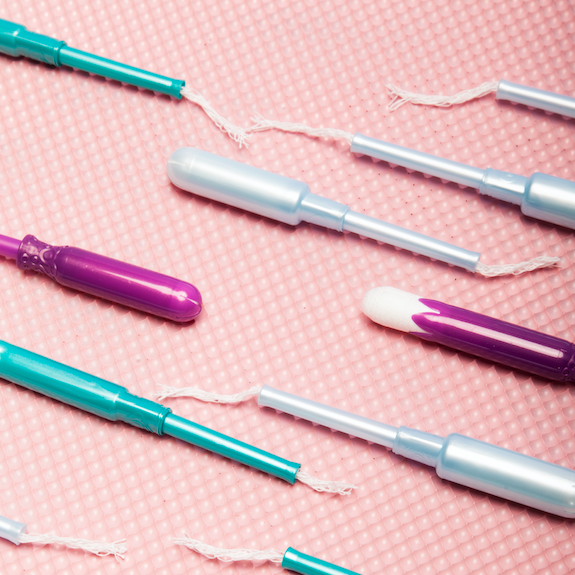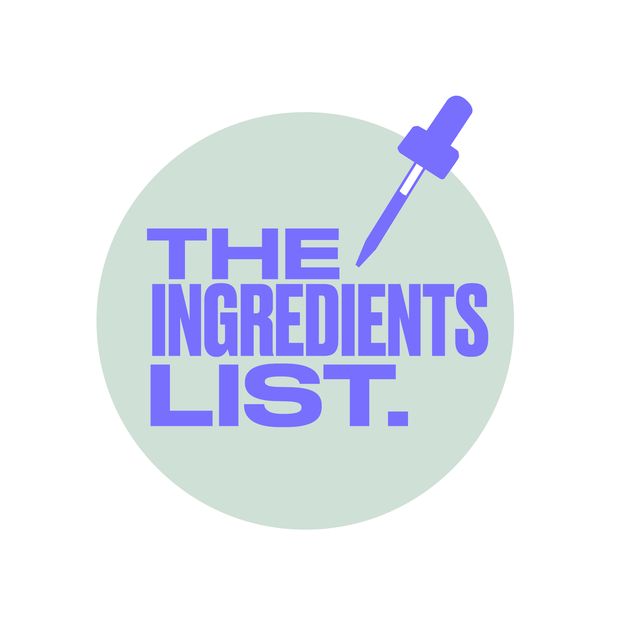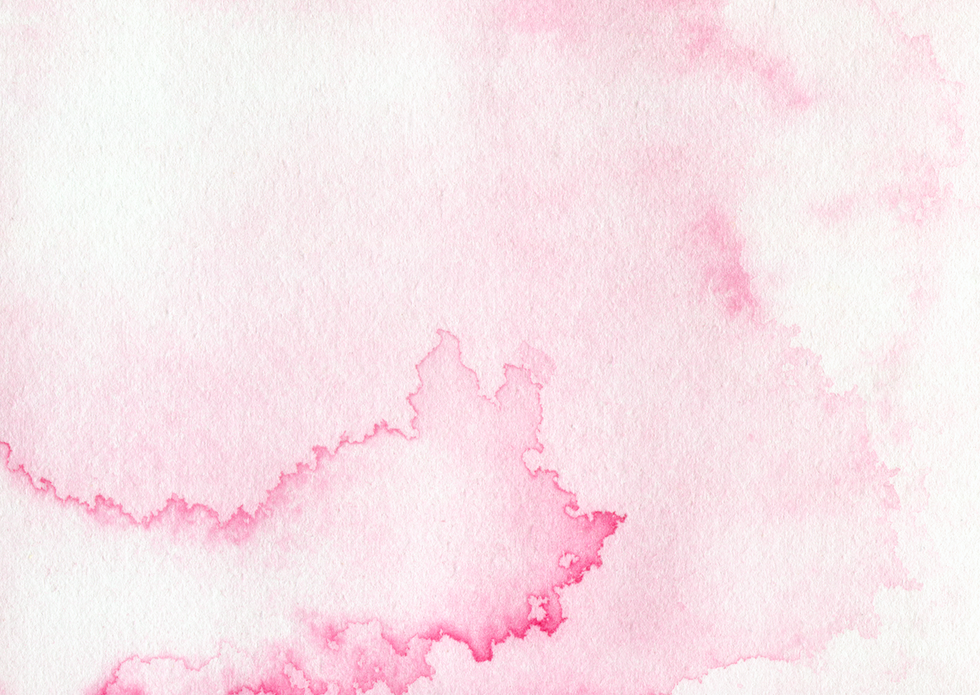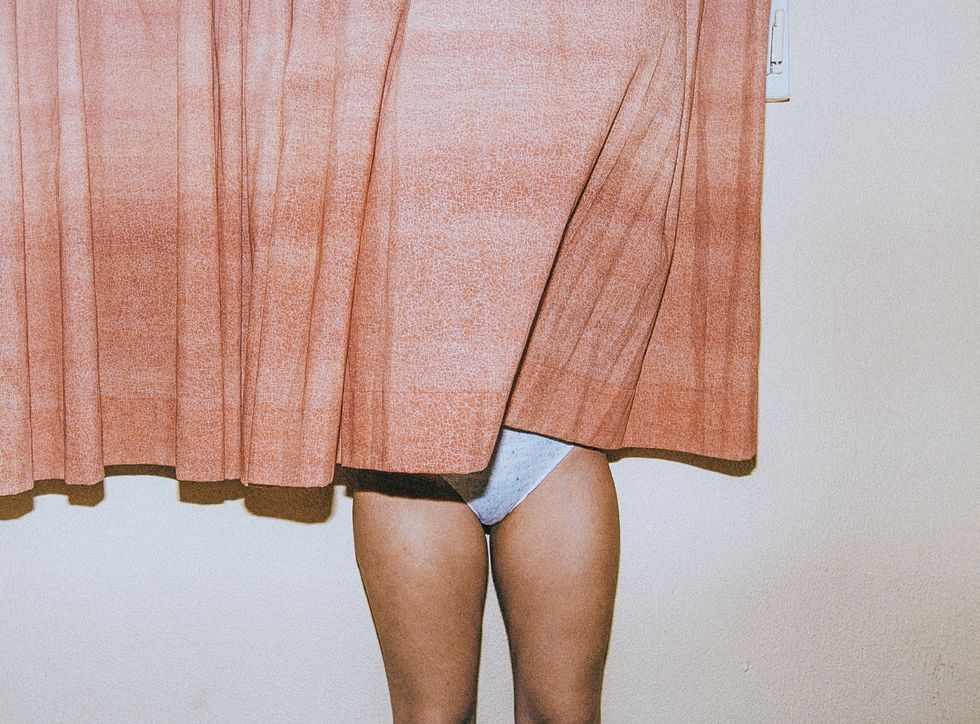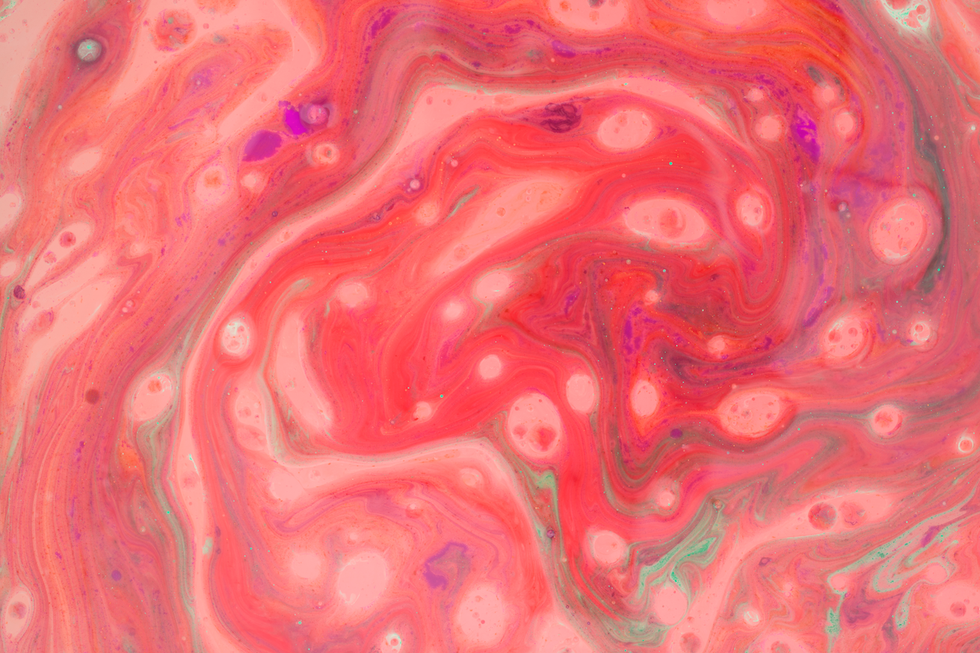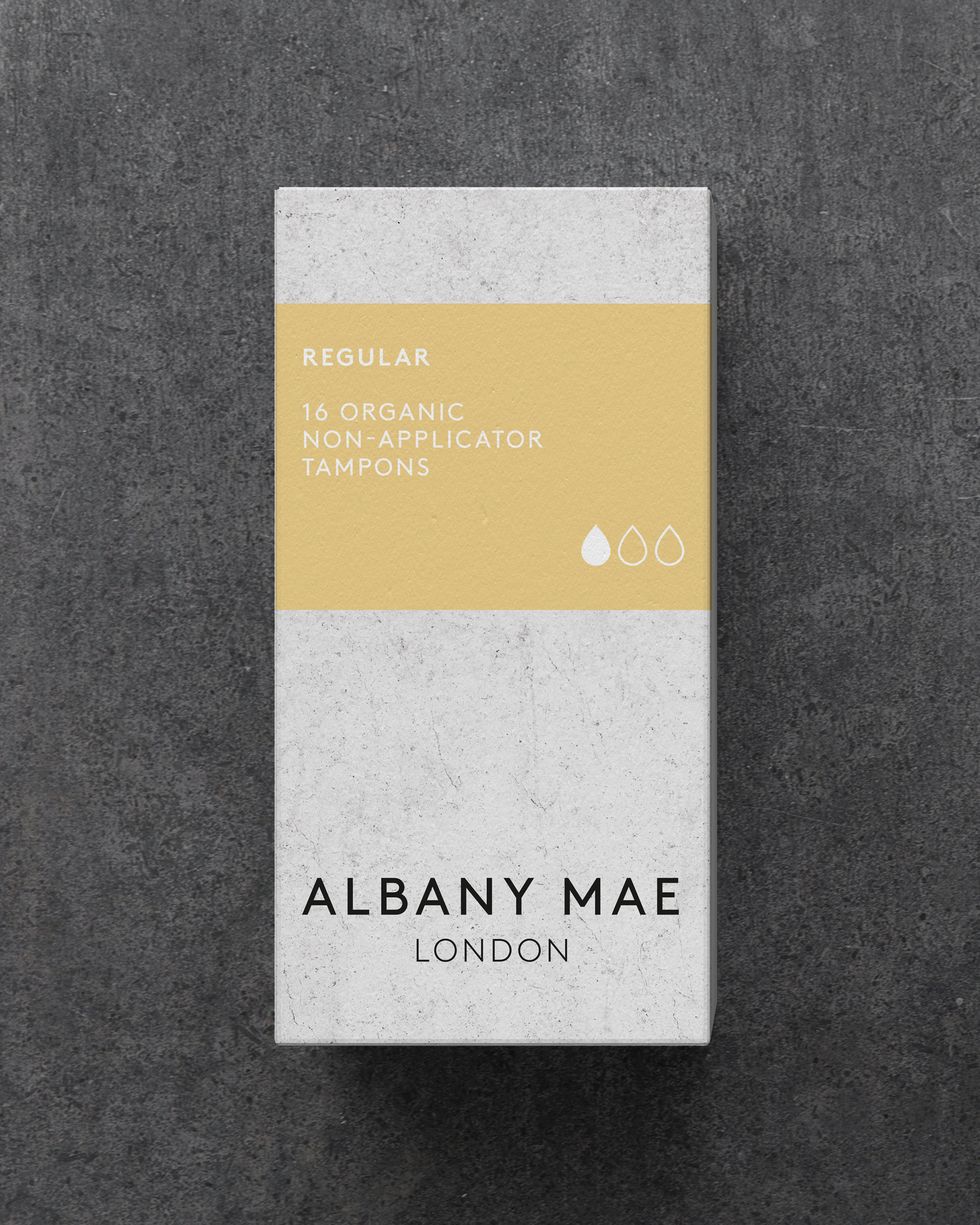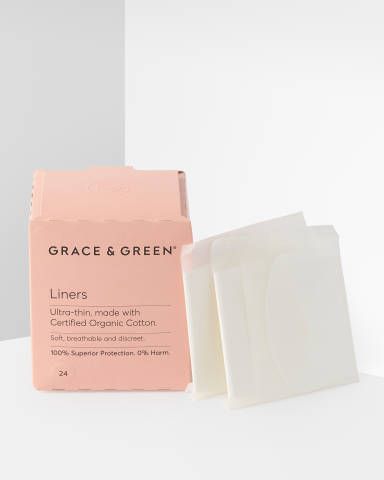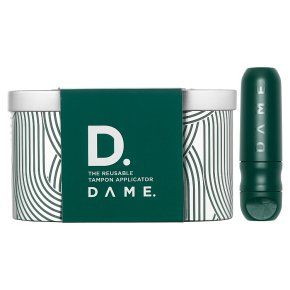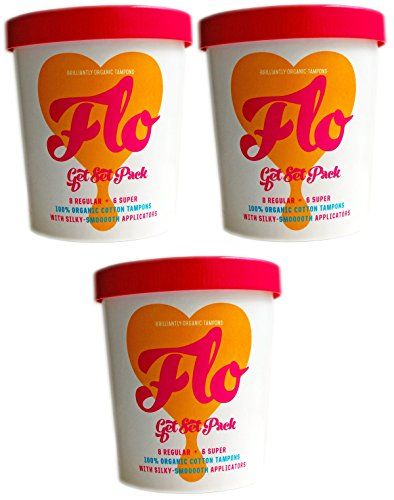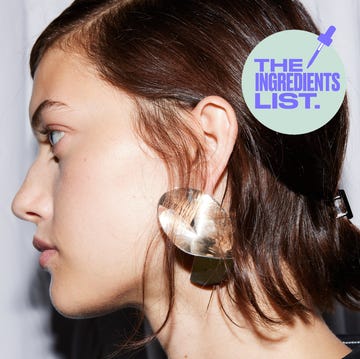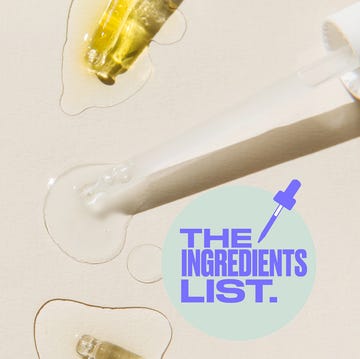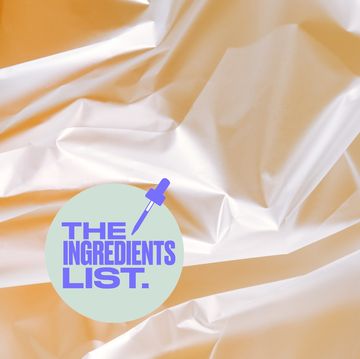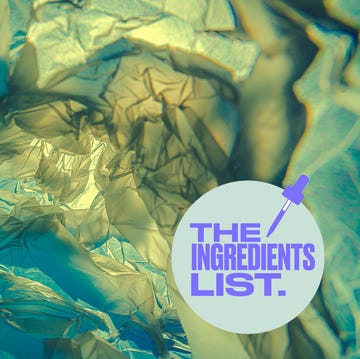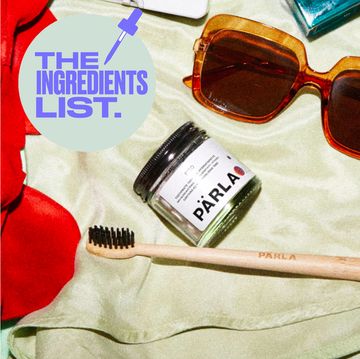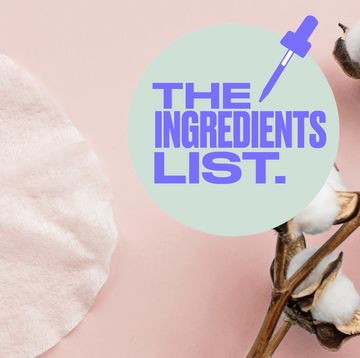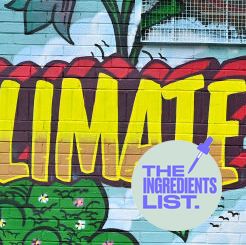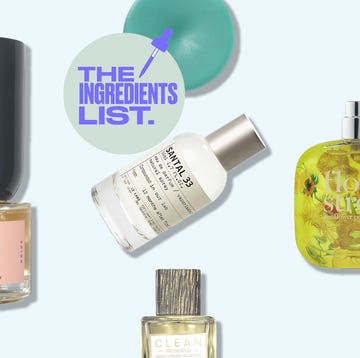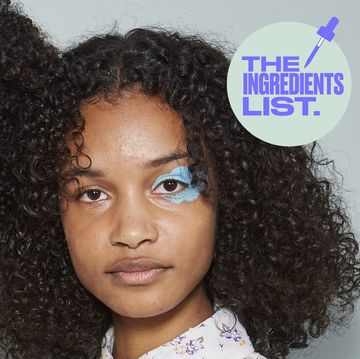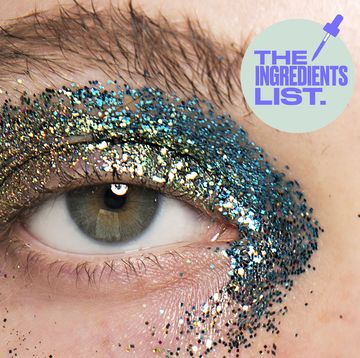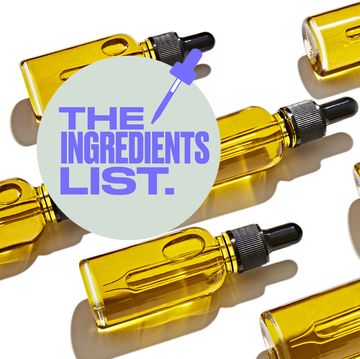The Ingredients List - Breaking down the what, where and why of natural and eco-friendly beauty.
Fact - we spend 355 hours of our lives buying period products. Those of us who are lucky to afford them, anyway. But how much time do we spend considering the environmental impact of all those bleached polyester sanitary towels and individually wrapped tampons in plastic casings? Almost none.
Which, when you consider that single-use period products are the fifth most common waste product washed up on our shores, is a little bonkers. Next time you go for a romantic stroll on the beach, just take a moment to consider the nine used tampon applicators that find a new home on the sand every kilometre.
From the applicator and string on a tampon, to the backing on a sanitary towel, to the wrapping you buy them in, your chosen period product could be made of up to 90% plastic. But, it's not just the environment that's suffering as the result of plastic-based period products - it's our bodies and our budgets as well. We're fastidious about buying paraben-free beauty products, won't touch fruit and veg grown using pesticides and know the ingredients list of our daily bowl of cereal intimately, but how much do you know about what goes into making your chosen period product?
'Let's first look at what some sanitary products may include - you may be surprised!', says Wellness and Skin Expert, Marie Reynolds. 'Pesticides, insecticide and dioxin residues, harsh bleaching agents, minuscule fibre shedding, then we have the fact that plastic applicators have their own chemical processes going on. All of these things may impact the vaginal flora and fauna and the pH level.' As the anti-bacterial hand gel generation, we're arguably over cautious when it comes to every other aspect of our lives, but a tampon that literally goes inside of us? Not so much.
It's time to get educated, and that means big brands providing clearer information on what their period products are actually made from. In an age where there are stricter regulations on the labelling of hamster food than there are on tampons, transparency needs to be at the top of major brands' to-do lists.
Luckily, there are plenty of alternatives, 'FLO sanitary care make cotton or bamboo towels and pads that have little or no fibre loss, applicators made from 95% plant based sugarcane, no petroleum, plastic, pesticides, or bleaching and they are pH protective,' explains Reynolds. 'If you can reduce your intake of harmful toxic ingredients, especially at a time when you can feel grotty, then why wouldn't you? It's not only beneficial to your health and wellbeing, but also environmentally friendly.'
Whether you're an environmental warrior or simply someone that lives on the earth and cares about it still being around in the near future, the period products you choose to use each month make a serious difference.
'Plastic doesn’t biodegrade and so the plastic in each period product we use will be around for 450 years. To bring this to life, if Jane Austen had used a disposable pad, it would still be here today!', plastic-free period subscription service, Organic Mondays, told ELLE UK. 'When you put this into context, it’s pretty shocking: women use an estimated 11,000 disposable period products over the 450 periods they each have in their lifetime. And this is just one woman - so it’s unsurprising to hear that tampons, pads and panty liners amount to more than 200,000 tonnes of waste per year in the UK.'
The first period product subscription service that's 100% plastic-free, Organic Mondays are changing the landscape for tampons and sanitary towels that are as good for us, as they are for the earth. Made from organic cotton and innovative compostable backing known as Mater-Bi, Organic Monday's system provides completely biodegradable products that still do the job just as well as their plastic counterparts. They've even removed the plastic tear strip from their delivery boxes. Because, it turns out, tampons and sanitary pads don't actually need to be made from plastic at all. In fact, natural fabrics tend to be much more absorbent than synthetics. Which means less leakage, less plastic, and more possibilities when it comes to committing to a planet-friendly period.
No longer are we beholden to purchasing our monthly stash of pads from a limited range of mainstream synthetic products at the local Tesco Express, now there are endless options available with just the tap of a screen. Biodegradable tampon company Albany Mae might deliver straight to your door, but you'll want to show off their chic Scandi-style packaging to any lucky passer by.
Alternatively, non-toxic tampon brand Ohne are all about 'Hustlin’ for healthy vaginas' through bespoke boxes of organic tampons that are tailored to your own individual period needs. Convenient, eco-conscious and with an unashamedly millennial-friendly design ethos, these forward-thinking brands are securing their place as the next generation of period products.
But the big question is, can we afford them? At £5.80 for 20 tampons, Ohne's offering might be better for your body and the planet but, at 190% more expensive than a generic high street equivalent, it's not ideal for your budget. 'We’re really conscious of not being preachy about sustainability - especially when it comes to the fact that generally plastic free period products can be more expensive - for now,' say Ohne. 'We are constantly striving to bring down prices, but in the meantime we offer our users value in other ways.' That pesky tampon tax? Included in the price. Delivery? Free, of course. Even with these inclusions, like any product that's concerned with sustainability, the earth might not pay the price, but you often do.
As period poverty continues to be an issue for the 1 in 10 girls that can't afford sanitary products at all, being able to award your period a higher sustainability status remains a luxury for millions. Thankfully, there is a middle ground. Re-usable sanitary towels and menstrual cups could provide an economically-friendly way to have your period and give a nod to the planet.
'It is important that women have as much choice as possible when managing their periods,' says Vanessa Mackay, Consultant Gynaecologist and Spokesperson for the Royal College of Obstetricians and Gynaecologists. 'It may also be more financially sustainable for women as a number of these products – washable sanitary towels for example – will not need to be replaced so regularly.'
Frankly, periods are bad enough, and not having access to sanitary products is even worse. So, if you can afford to keep the sea tampon-free and treat your vagina to a biodegradable organic cotton tampon, then more power to you. But, if at the moment considering re-usable options is all that's on the cards financially, then we won't be eco-shaming you, or your bits, any time soon. Until then, take a look at the ingredients list a little closer and encourage those mainstream brands to make the change to plastic-free products. You, and your period, deserve it.
